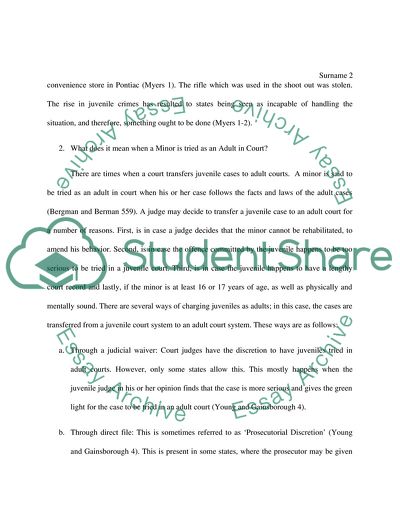Cite this document
(Should Minors Be Charged as Adults in Court Term Paper, n.d.)
Should Minors Be Charged as Adults in Court Term Paper. https://studentshare.org/law/1804607-should-minors-be-charged-as-adults-in-court
Should Minors Be Charged as Adults in Court Term Paper. https://studentshare.org/law/1804607-should-minors-be-charged-as-adults-in-court
(Should Minors Be Charged As Adults in Court Term Paper)
Should Minors Be Charged As Adults in Court Term Paper. https://studentshare.org/law/1804607-should-minors-be-charged-as-adults-in-court.
Should Minors Be Charged As Adults in Court Term Paper. https://studentshare.org/law/1804607-should-minors-be-charged-as-adults-in-court.
“Should Minors Be Charged As Adults in Court Term Paper”. https://studentshare.org/law/1804607-should-minors-be-charged-as-adults-in-court.


